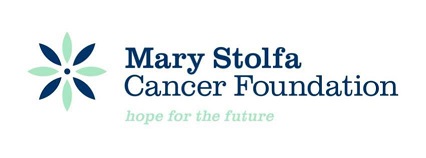 |

|
|
|
Diet May Protect Against Gene Changes in Smokers Leafy green vegetables, folate, and some multivitamins could serve as protective factors against lung cancer in current and former smokers, according to a study that is a first step in understanding a complex association. The study was supported by the National Cancer Institute (NCI), part of the National Institutes of Health. The study appeared online Jan. 12, 2010, in Cancer Research. Researchers, led by Steven Belinsky, Ph.D., Lovelace Respiratory Research Institute, Albuquerque, N.M., examined cells that were coughed up by current and former smokers. Upon careful study of the cells and by comparing those cells with profiles of smokers' dietary intake of leafy green vegetables, folate, and some multivitamins, they found that those particular substances could influence the prevalence of cellular gene methylation. Gene methylation is a chemical modification used by the cell to control gene expression. The addition of methyl groups, which are simple four atom molecules, to DNA can affect whether the gene is expressed, i.e., whether the gene's signal to produce a protein is actually sent. Many genes involved in critical cell functions, including cell division, are methylated in lung tumors. Gene methylation is likely to be a major mechanism in lung cancer development and progression, as well as a potential marker for the early detection of lung cancer. In the study, slightly more than 1,100 current and former smokers from the Lovelace Smokers Cohort submitted sputum samples and completed questionnaires regarding their dietary intake. Most (75 percent) of the participants were women who had been enrolled in the study since 2001. Men were not enrolled until 2004. The researchers next investigated associations between 21 dietary variables and methylation. Both higher intake of leafy green vegetables and higher intake of folate were significantly associated with a reduced probability of high methylation. Current multivitamin users also had less DNA methylation, although there was no association between the duration of multivitamin use and methylation. "Aberrant gene methylation is a known mechanism in the development of cancer from cigarette smoke carcinogens," said Jacob Kagan, Ph.D., of the Cancer Biomarkers Research Group in NCI's Division of Cancer Prevention. There has been considerable debate regarding the relationship between diet and cancer prevention. Previous studies, such as the Alpha-Tocopherol, Beta-Carotene Cancer Prevention (ATBC) Trial, showed an increased risk of lung cancer in smokers who took beta-carotene supplements. In contrast, the current study shows reduced gene methylation with the intake of multivitamin supplements that are rich in phytochemicals, such as vitamin C, carotenoids, lutein, folic acid, and vitamins A and K--the same agents present in leafy greens. Previous studies have suggested an association between a low folate intake and increased lung cancer risk in current and former smokers. Higher folate intake has been associated with lower methylation of genes in colorectal tumors as well. "Additional research is needed to independently validate the current observations, and also to help resolve contradictions between varying studies. This particular study used a well-planned design and can serve as a basis for future identification of the mechanistic targets of these dietary factors. Such studies are important steps for the future success of chemopreventive strategies" said Sudhir Srivastava, Ph.D., chief, Biomarkers Research Group, NCI. The authors of this study believe that since gene methylation is a promising marker for lung cancer, understanding the factors underlying methylation is a high priority and could be used for early detection and chemoprevention of lung cancer. They also recommend that lung cancer prevention interventions be developed that take into consideration the influence of dietary factors on cancer risk. Posted by the National Cancer Institute January 12, 2010 | About Mary Stolfa | Our Mission | Newsletter | Volunteer | Beauty Parlor | News Articles | Clinical Trials | Other Resources for Cancer Information | Nutrition | Acknowledgement, Awards & Public Acclaim | Foundation Projects | MSCF Products | | Return Home | Fundraisers | Donations | Wall of Honor | Stories of Hope | Information on Specific Cancers (A-M) | Cancer Issues | Contact Us | Site Index | |
||
